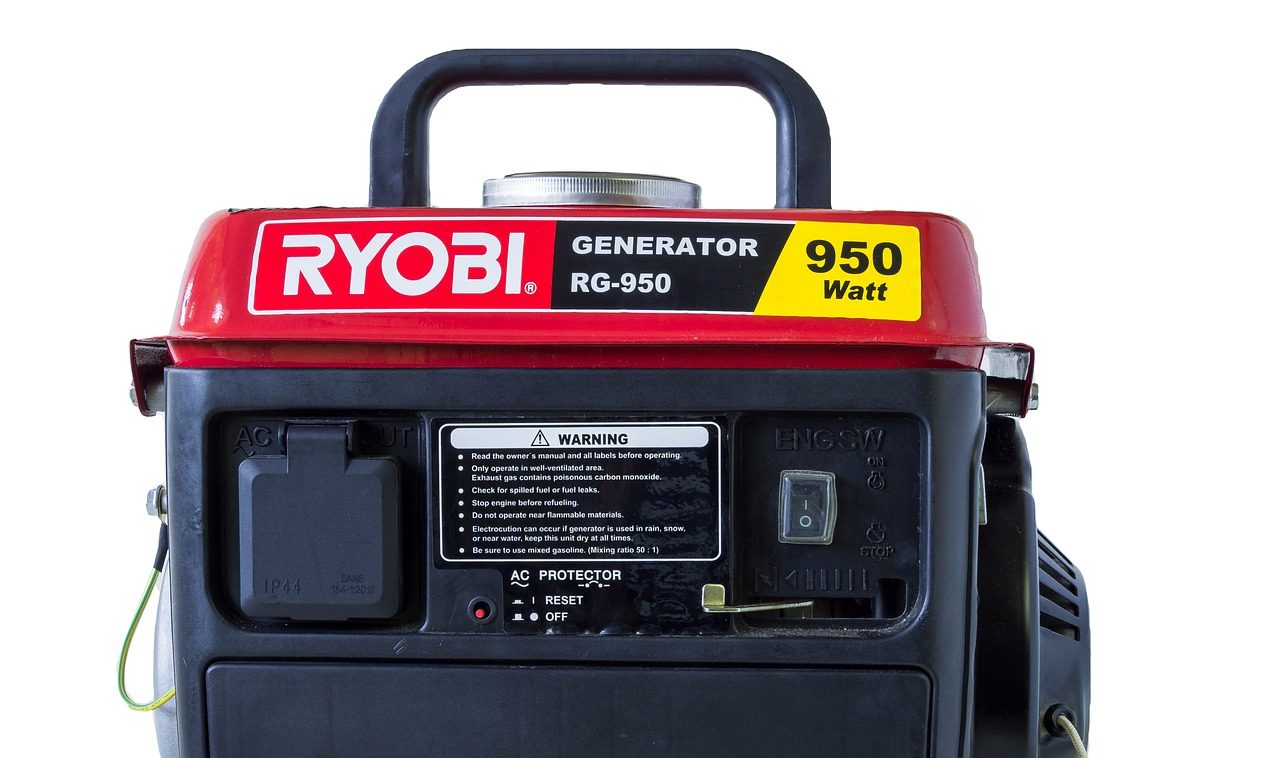Traveling in a pop-up camper can be loads of fun, but your time on the road would never be as enjoyable and convenient as when you have access to enough power to run many electronics in the vehicle.
A reliable generator will let you run appliances like air conditioning, heater, and fridge at the same time you plug in your phone, laptop, hairdryer, and coffee maker. Since not all generators can perform well in a camping situation, we decided to put together this guide to help you make the right choice.
If you’re looking to buy a pop-up camper generator, then keep reading to find out what features and factors you need to consider so you end up with the best deal.
Portable vs Built-in Generators
Determining the better configuration of a generator in a camper vehicle has been a hot topic for debate within the RV community for the longest time, and it doesn’t seem like it’ll go away any time soon.
To help you choose between rolling with a portable generator or permanently installing one in your pop-up camper, we’ll discuss the advantages and drawbacks of each configuration below.
Portable Generators
Portable generators are a great option for camping outdoors, especially if you’re looking for more flexibility on the road. Granted, they may not be as powerful as built-in generators, but they do have some pros.
For one, portable generators are generally more affordable so they’re a good choice if you’re trying to cut down on costs. They’re also more compact, so you don’t have to gove up lots of precious space in your pop-up camper.
Additionally, portable generators don’t require frequent maintenance and they offer long-lasting power along with many outlets.
On the flip side, these machines must be turned on and off manually, they’re often less powerful than built-in generators, and they can be noisy when running.
Built-In Generators
These generators are known to be more expensive and bulky. However, if you can spend the extra money and sacrifice some space in your pop-up camper, a built-in generator can make sure that all of your power requirements are met efficiently.
Besides delivering more power than the portable type, the pros of owning a built-in generator include giving you the option of being programmed for automatic turning on and off as well as providing a fully integrated system that’s connected to the wiring of all the appliances already present.
As for the cons, built-in generators are generally more expensive, take up more space bulk, produce louder noise, demand frequent maintenance, and require a professional to install.
Lithium Battery vs Fuel Powered Generators
Next, you need to decide whether your pop-up camper can serve your power need better with a lithium battery-powered generator or a fuel-powered one. Below, we’ll cover the pros and cons of each type to help you take your pick.
Lithium Battery Powered Generators
Lithium batteries that are used to run generators are so much different than the batteries used in remotes, cameras, and other small electronic devices.
They’re a lot more powerful and can provide the required wattage for the appliances in your pop-up camper. However, their level of power will never match that of fuel-powered generators.
As such, the cons of battery-powered generators include lower wattage input and shorter run time. We can’t deny they’re notably quieter when working, but they take time to recharge and this can be quite inconvenient when you need power on the spot.
That being said, lithium battery-powered generators are more lightweight and portable than their fuel counterparts. They also offer a variety of charging methods including green energy via solar panels.
Fuel Powered Generators
Fuel-powered generators are equipped with motors that burn propane or gasoline to power their operation. As a result, these generators are always going to be more capable than battery-powered ones.
In addition to a higher wattage output and many outlets to connect, these generators offer extended run times because they’ll work for as long as you provide the necessary fuel.
The downsides of using fuel-powered generators in pop-up campers include being difficult to transport, producing very loud noise when running, and having to refuel with additional costs.
Run Time
One of the most important aspects to check before deciding to buy a certain generator is the run time.
A longer run time means you’ll get to enjoy your camping adventure with the convenience of running your electronic appliances and devices for more extended periods. The need to recharge or refuel the generator won’t be very frequent in such a case.
On the other hand, a generator with a more limited run time will often require recharging or refueling. This can be pretty frustrating if you have to make repeated stops on the road.
Noise level
You should also consider the noise level of your pop-up camper generator. Louder generators can be extremely annoying, especially if you’re staying inside the vehicle.
Noise pollution is sure to cut the fun out of your trip, so make sure you avoid it as much as possible by using sound mufflers or deflectors.
Durability
Durability ensures that you get your money’s worth, so be sure to pick a generator that’s been built to last. This will also help you save money because you won’t need to replace parts as often as in low-quality generators.
Stability
Another factor to check for in a pop-up camper generator is power stability. If it produces stable power, you won’t have to worry about damage when using sensitive electronics.
Low fuel shut off feature
Finally, don’t forget to check for a low fuel shut-off function. This feature serves as a safety measure by automatically turning off the generator when the level of fuel goes down to a certain point, effectively preventing potential damage.
Wrap Up
There are several factors to consider when choosing a pop-up camper generator. Your decision should reflect a balance between the power requirements of the electronics in your vehicle and the budget you’re want to uphold.




